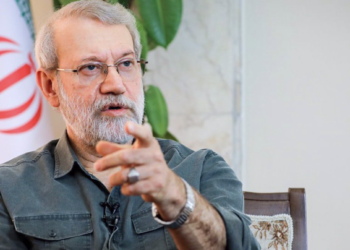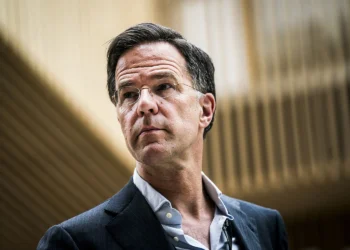BRUSSELS (Realist English). CIA Director John Ratcliffe made a discreet visit to Brussels this week, holding meetings with top European Union foreign and intelligence officials in what multiple sources described as a mission to restore confidence in U.S. intelligence cooperation.
According to three officials familiar with the discussions, Ratcliffe met with EU foreign policy chief Kaja Kallas, senior staff at the EU Intelligence and Situation Centre (INTCEN), and the EU Military Staff Intelligence Directorate (EUMS).
Two European officials said Ratcliffe’s objective was to reassure allies that Washington remains a dependable intelligence partner, amid growing unease in some European capitals over President Donald Trump’s foreign policy decisions.
The Trump administration’s abrupt moves — including its suspension of battlefield intelligence sharing with Ukraine last March and efforts to install political loyalists in senior security posts — have unsettled European intelligence services, raising doubts about U.S. consistency and professionalism.
Ratcliffe, a former Texas congressman and longtime Trump ally, was known on Capitol Hill as one of the president’s most vocal defenders during his first impeachment inquiry. His Brussels trip marks his most direct outreach to European partners since taking office.
Officially, the CIA chief was in town to brief the North Atlantic Council, NATO’s top political body, but he also held side meetings at the European External Action Service (EEAS) — a move widely interpreted as a gesture of reassurance from Langley.
“This shouldn’t be a one-time meeting,” said one European official briefed on the talks. “The idea is to make such contacts regular.”
Sources said Ratcliffe’s discussions covered shared concerns over Russia, China, and instability in the Middle East, as well as the future of transatlantic intelligence coordination.
CIA spokesperson Liz Lyon confirmed that Ratcliffe met with European counterparts to address “the evolving threats that Russia and China pose to transatlantic security” and to discuss “joint strategies” to counter them.
“Any reporting suggesting that concerns were raised about U.S. reliability is false and disconnected from reality,” Lyon said in a statement to POLITICO.
The visit comes at a delicate moment for European intelligence cooperation. Several EU services are working to strengthen intra-European intelligence structures while reassessing their dependence on U.S. channels. Earlier this month, the Dutch civil and military intelligence agency (AIVD/MIVD) told De Volkskrant that it had halted certain exchanges with Washington, citing political interference and human rights concerns.
Ratcliffe’s trip, one diplomat said, was meant as a reminder that despite political turbulence in Washington, the CIA remains committed to “keeping the lights on” in transatlantic security cooperation.


















